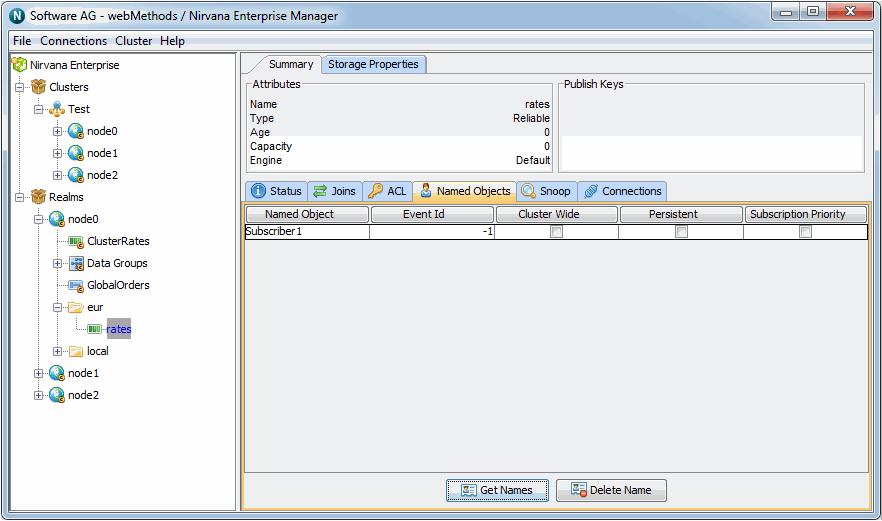Channel Named Objects
This section describes how to manage named objects stored by a realm server against a Universal Messaging channel. Named objects are stored by the server and provide state information for durable consumers mapped to specific names on channels. These named objects are stored by the server, and so every time a consumer uses the named object, it will always begin consuming from where the previous consumer finished.
The Universal Messaging apis provide methods for managing named objects programmatically, in Java and C#.
The Enterprise Manager also provides a method to remove named objects from channels.
In order to retrieve and remove any named objects present on a channel, firstly you need to select the channel. This will present a set of panels within a tabbed pane for the channel in question. One of these is labeled 'Named Objects'. When you first select the 'Named Object' tab, this table will be empty. If you click on the button labeled 'Get Names', this will populate the table with any named objects found for that channel. The image below shows the named object table for the /eur/rates channel has a named object for the name 'administrator'.
The named object table shows each named object as a row in the table. The columns of the table show the name, current event id (as known by the server), whether the named object is cluster wide and whether it is persistent (when a realm is restarted the named object state is read from disk as opposed to being held in memory where it would be lost after a restart).
By highlighting a named object in the table, you can remove it by clicking on the 'Delete Name' button. This button will remove the named object from the server.

